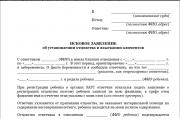Colic, gas, constipation in premature babies. Constipation in newborns and infants
The digestive system of a newborn baby is in the process of formation, for this reason the baby often has problems with stool, accompanied by increased gas formation, abdominal pain and cramps. According to statistics, every fourth breastfed baby experiences difficulties in bowel movements, which disappear as soon as the gastrointestinal tract improves. The task of parents during this period is to help the child by eliminating all factors that provoke the development of physiological constipation. With the right approach to solving this problem, medications may not be needed.
Normal or constipated?
The frequency and consistency of stool is one of the indicators of the normal physical development of a baby, so it is not surprising that the contents of a diaper are a hot topic for mothers of infants. Causes of concern for young parents may be a delay in bowel movement in the baby for a couple of days, an insufficient (in the mother’s opinion) amount of feces, changes in its color, smell, and thickness. However, you should not sound the alarm and use various remedies for constipation for a baby who feels great, but does not poop as often as the child of a neighbor (friend, acquaintance). Since for children during breastfeeding there are no norms and standards regarding the frequency of bowel movements.
It's all about breast milk, which, unlike an adapted formula, changes daily in composition, fat percentage, density and hormonal levels. Therefore, at one time the baby may have stool after each feeding, and then once every few days, and this is normal. If the baby has no signs of intoxication, dehydration, increased moodiness or, on the contrary, lethargy and apathy, bowel retention for 4 days is not a pathology. On the contrary, this indicates that mother’s milk is completely absorbed by the body and the baby simply has nothing to put on the diaper.
You should talk about constipation only if the lack of stool bothers not only the parents, but also the child. It is not difficult to understand this if you know the main symptoms of constipation in infants.
In breastfed children, the frequency of stool can be from 5-6 times a day, up to 1 time a week. However, the diagnosis of constipation is not made if the child feels well
Signs of constipation in newborns while breastfeeding
To determine constipation in breastfed children in the first year of life, a combination of several factors should be taken into account:
- Consistency of stool. A sign of constipation is hard, lumpy feces, which is unusual for infants.
- Child's behavior during defecation. Newborn babies and babies up to six months old have weak abdominal muscles, and, moreover, considering that they spend most of their time in a horizontal position, it is not strange that when defecating they experience difficulties, grunt and strain. If a child sulks several times a day, to no avail, and his stomach is hard to the touch, we can talk about constipation.
- The child's well-being. Constipation is dangerous because in the absence of stool for a long time, rotting processes occur in the intestines, poisoning the child’s body. Signs of intoxication are:
- increased body temperature;
- dry lips;
- peeling of the skin and rash;
- lack of appetite;
- lethargy and drowsiness.
In other cases, if the consistency of the stool is mushy or in the form of a soft sausage, the child grunts and sulks during bowel movements, but the rest of the time sleeps normally, eats and gains weight, a prolonged absence of stool is normal.
Causes and factors of constipation in infants
Physiological constipation in infants can occur periodically until the functioning of the gastrointestinal tract is completely improved. Concomitant factors for the development of constipation include:
- lack of fluid in the body;
- mother's milk is too fatty;
- changes in the diet of a nursing woman, consumption of foods that have a fixing effect;
- lack of mother's milk (“hunger constipation”);
- changes in the hormonal levels of a nursing woman (in this case, the mother will also have constipation);
- overfeeding the child;
- untimely introduction of complementary foods;
- disturbance of intestinal microflora;
- taking certain medications;
- weakened muscle tone in a child (hypotonia), slowing down peristalsis;
- strong tone (hypertonicity) causing spasms of intestinal smooth muscles;
- overheating of the baby.
Physiological constipation in an infant is not a disease, and when the factors that provoke its development are eliminated, stools usually return to normal. In cases where difficulty or absence of bowel movements is just a symptom of a more dangerous pathology, other signs of the disease will also be present.
If you notice one of the symptoms of these diseases, you should immediately seek medical help.
What should a mother of a baby do?
First of all, you should exclude possible factors that led to constipation, and also help the child to adjust his bowel movements on his own. Medications and enemas are used for acute and long-term constipation, to alleviate the baby’s condition; they should not be abused, as this can lead to a weakening of muscle tone and the reflex to defecation, and the problem will become chronic.
How to help your baby with constipation
The nature of constipation in infants is spastic - caused by intestinal spasms, and atonic - due to decreased intestinal motility.
In the first case, the baby's tummy will be hard, and the feces will look like hard, dry balls (sheep feces). A warm compress from an ironed diaper placed on the baby’s bare tummy will help relieve the spasm. A warm bath with herbs - lemon balm, lavender, thyme, valerian and oregano - is no less effective in dealing with cramps. After your baby has taken a relaxing bath, do not put a diaper on him, blot the baby's steamed skin and do gymnastics.
The main elements of gymnastics for constipation are alternately pulling the legs bent at the knees towards the stomach, as well as the bicycle exercise. All movements are performed gently, without pressure; if the baby resists, you should not insist, because there will be no result from such activities.
If, during gymnastics, the baby begins to groan and pout, you can help him by bending two legs at once and pulling them towards his stomach, and then put a little pressure on him with his knees and hold the baby in this position.
If the baby is unable to cope on his own, you can increase the urge to defecate and facilitate the passage of accumulated gases using a pipette. To do this, remove the rubber tip from the sterile pipette, and lubricate the narrowed, smooth end with vegetable oil or glycerin. Next, holding the baby’s legs in a position pressed to the tummy with one hand, and with the other, carefully insert the tip of the pipette rectally, making scrolling movements. The maximum insertion depth should not exceed 1–1.5 cm, otherwise the rectal mucosa may be damaged.
In premature babies or babies with low weight, there is a decrease in the tone of the smooth muscles of the intestines, which makes it difficult for the movement of feces. In this case, it is recommended to do a daily tummy massage.
 It is advisable to place children from 6 months on a potty with an anatomical shape, this increases pressure on the rectum and promotes, intensifies the urge, and facilitates bowel movements
It is advisable to place children from 6 months on a potty with an anatomical shape, this increases pressure on the rectum and promotes, intensifies the urge, and facilitates bowel movements
Abdominal massage
To perform the massage, the baby is laid on his back, on a flat table surface, previously covered with a diaper. The procedure time should not exceed 10–15 minutes.
The order of movements during massage is as follows:
- Circular, stroking movements are performed clockwise around the navel.
- Stroking the oblique abdominal muscles from the periphery to the center.
- Acupressure of the rectus abdominis muscles is performed in a circular motion with the pad of the index finger.
- The massage should be completed with the same movement as at the beginning of the procedure.
 When performing a massage, make sure that the temperature in the room is within normal limits; you should also completely undress the baby so that clothes or a diaper do not hinder your movements and do not interfere with the procedure
When performing a massage, make sure that the temperature in the room is within normal limits; you should also completely undress the baby so that clothes or a diaper do not hinder your movements and do not interfere with the procedure
An important point in overcoming constipation is correcting the diet of a nursing mother. To normalize the stool of a breastfed baby, it is useful for the mother to eat foods rich in fiber, which stimulate intestinal function:
- Cereals - oatmeal, buckwheat.
- Fresh vegetables - cucumbers, tomatoes (only in season), carrots, cabbage, as well as salads from them, seasoned with vegetable oil. It should be noted that white cabbage increases gas formation, therefore, in case of infant colic, its use by a nursing mother is undesirable.
- Boiled vegetables - pumpkin, beets.
- Fresh fruits - green apples, apricots, plums.
- Dried fruits - dried apricots, prunes, dried apples and pears.
- Bran and bran bread.
To normalize microflora and replenish calcium reserves, fermented milk products should be present in the daily diet.
If the baby is prone to constipation, the following dishes are excluded from the nursing diet:
- fresh baked goods and pastries;
- cookies "Mriya", "Zoological"
- whole milk;
- sweets;
- semolina and rice porridge;
- Black tea;
- cocoa and chocolate;
- persimmons, bananas.
We should not forget about the drinking regime, because in addition to tea to improve lactation, it is useful for a woman to drink clean water in sufficient quantities, as well as infusions of dill and fennel seeds, which eliminate bloating in the baby and normalize digestion.
 The diet of a nursing mother should not be meager and monotonous. Various vegetables and cereals, fruits and dairy products should be gradually introduced into the menu.
The diet of a nursing mother should not be meager and monotonous. Various vegetables and cereals, fruits and dairy products should be gradually introduced into the menu.
Introduction of complementary foods for infants
If a 6-month-old baby suffers from constipation, the correct introduction of complementary foods will help cope with the problem. Until recently, it was believed that the first food, in addition to mother's milk, should be vegetable and fruit purees. However, pediatricians are increasingly inclined to believe that homogenized vegetables, devoid of fiber, only overload the child’s stomach, and in combination with breast milk, even lead to constipation. Whereas fermented milk products are better tolerated by the body, do not cause allergies and normalize the composition of the intestinal microflora.
Where is the best way to start complementary feeding, the opinion of Dr. Komarovsky - video
What medicines can be given
For children of the first year of life with constipation, it is permissible to use laxatives only from the prebiotic group, based on lactulose. The active substance of such drugs is not absorbed by the human body, but once it enters the intestines, it helps to increase the volume of feces, as well as the growth of beneficial microflora. Due to the fact that the baby’s intestinal microflora begins to actively multiply in the first days of taking the drugs, bloating and increased colic may occur, so doctors recommend increasing the dosage of the drug gradually. Lactulose syrups are produced under such commercial names as Duphalac, Normaze, Lactuvit.
Another safe remedy for eliminating constipation in infants is suppositories with glycerin, which do not affect the general condition of the body, but, when administered, have an irritating effect on the receptors of the rectum, thereby stimulating the child’s urge to defecate. In addition, under the influence of body temperature, the suppositories dissolve and facilitate the passage of solid feces to the exit.
Despite the safety of use and harmlessness of the drugs described above, they can only be used if constipation in a child is the only symptom. In cases where the baby has a fever, vomiting, cramps, or severe abdominal pain, the use of such drugs is unacceptable, since constipation accompanied by such manifestations is usually caused by serious pathologies requiring surgical treatment.
Acceptable medications for constipation in infants, says Dr. Komarovsky - video
Folk remedies
Infants in the first three months of life should not be given any herbal decoctions other than dill water or an infusion of fennel seeds. You can prepare such remedies yourself by pouring a teaspoon of seeds with a glass of boiling water and leaving for half an hour. The essential oils contained in these plants have a positive effect on intestinal motility, eliminate inflammation, and help soften stool.
Children from 6 months can be given a decoction of prunes. It's quite simple to prepare:
- One medium-sized dried plum is soaked in boiled water for 10 minutes.
- The soaked plum is cut into small pieces, removing the pit.
- The first water is drained, and the prunes are refilled with 200 ml of water and brought to a boil.
- The strained broth is diluted with boiled water 1 to 1.
- Children from 6 months are given a decoction of 1 teaspoon three times a day, before feeding, and for babies from 9 months the dosage is increased to 1 tablespoon at a time.
Treatment prognosis and possible complications. Consequences
Since the main causes of constipation in infants are the physiological characteristics of the digestive system, you should not immediately use drastic methods such as enemas and medications. With the right approach to solving the problem, namely, the use of preventive measures and assistance only in case of acute constipation, the result will not be long in coming. As a rule, with the introduction of the first complementary foods, the baby's stool returns to normal.
Prevention
In order to prevent the occurrence of constipation or eliminate existing problems, factors that contribute to stool retention in infants should be eliminated. Such methods of prevention, as well as treatment, are:
- Child nutrition. By weighing the baby before and after feeding, you can find out the one-time serving of milk. This is necessary in order to exclude causes of constipation such as overeating or lack of breast milk.
- In between feedings, you need to give the baby clean water in the amount recommended by the pediatrician.
- Baby activity. During the waking period, the child should be carried in an upright position, placed on his tummy, massage and gymnastics should be performed, thereby stimulating intestinal movement.
- The diet of a nursing mother should consist of eating foods that contain a lot of fiber and have a laxative effect.
- Persistent constipation is caused by too dry and warm air in the room, as well as overheating of the baby.
Features of premature babies
Enzymes that facilitate the digestion of breast milk begin to be synthesized in the body at the 24th week of the baby’s development, so children born before this period have difficulty digesting food. Symptoms of such enzyme deficiency are constipation, colic, vomiting, and abdominal pain. To solve this problem, the doctor may prescribe enzyme-containing drugs to the newborn.
Before treating constipation in an infant, you should find out whether such a problem actually exists, or whether infrequent bowel movements are the norm for the baby, a physiological feature of his digestive and excretory system. If a prolonged absence of stool really causes discomfort and discomfort to the baby, you should eliminate the causes of constipation and try to stimulate peristalsis with non-medicinal means. The use of medications is possible only after consultation with a doctor.
My name is Elena. Medicine is my calling, but it so happened that I was unable to realize my desire to help people. But, I am the mother of three beautiful children, and writing articles on medical topics has become my hobby. I want to believe that my texts are understandable and useful to the reader.
A common cause of sleepless nights for young parents is disruption of the child's developing intestinal tract: colic, flatulence and constipation. According to statistics, every fifth baby suffers from the latter. Typically, formula-fed or mixed-fed babies are susceptible to this unpleasant disease, but infants are also at risk. What is the cause of constipation and infants, how to avoid it, what emergency measures can be taken and how to ensure comfortable digestion for the baby - tasks of paramount importance. Parents' non-serious attitude towards this problem or the use of medications and treatment methods inconsistent with the pediatrician is fraught with a lot of complications for the baby in older age.
What can be considered constipation in a baby?
From a medical point of view, constipation in a child under one year of age is considered difficulty in defecation or lack of bowel movements in the last 24 hours. This concept is quite vague, since it is closely related to the specific age of the child: in a bottle-fed baby and in an infant, the frequency and consistency of stool will differ significantly. For example, for newborns under the age of one month, the norm is to have bowel movements in the same amount as there were meals. This is for breastfeeding. For an artificial child, the norm is only 2–3 bowel movements per day.
The instability of the baby's intestines is of great importance. Without the help of a specialist, it is quite difficult to determine when a baby suffers from constipation, and when a decrease in stool frequency is just a physiological feature of the development of a small organism. Therefore, it is important to control not only the number of “passages”, but also the consistency, smell, density and color of feces, and the child’s behavior before and during bowel movements.
Baby stool up to six months has a semi-liquid consistency. It is yellow in color, without an unpleasant odor, and may contain particles of undigested breast milk in the form of curdled inclusions. Artificial feces are denser and may have a characteristic specific odor.
Signs and symptoms of constipation
The main thing you need to pay attention to is the general condition of the child and the consistency of the stool. Symptoms indicating constipation include:
- A child with constipation is capricious and cries;
- restless behavior of the child during bowel movements: but straining does not lead to any result, expression of pain on the face, pushing, crying;
- any attempt to empty the intestines is accompanied by screams and restless movements of the baby;
- When a baby is constipated, the feces are hard: either they look like peas, or the first portion looks like a “cork”, followed by a mushy mass;
- incomplete bowel movement;
- regular stool retention for 1 – 2 days;
- restless sleep;
- refusal to eat;
- absence of gases;
- causeless crying;
- bloating;
- pulling your knees to your chest;
- vomit.
The manifestation of one or two of these signs does not mean that the baby is constipated, but if several symptoms are present, you can be quite confident in the diagnosis and begin treatment. First of all, be sure to contact the pediatrician observing the child. It is necessary to exclude the possibility of an intestinal reaction to medications taken, new foods, the start of complementary feeding and other factors that provoke difficulties in the gastrointestinal tract. Be sure to diagnose dysbiosis, allergic reactions and other digestive pathologies. A nursing mother should urgently introduce into her diet foods that activate the motility of intestinal smooth muscles: boiled prunes, beets, pumpkin. For children after six months, in the absence of allergies, these products can also be used as complementary foods.

If the child is calm, does not refuse the breast or bottle, and bowel movements do not cause him discomfort, then this is definitely not constipation. In newborns, mother's milk or formula can be absorbed so well that they simply cannot go to the toilet.
If the listed problems are still present, then before treating constipation, it is necessary to find out the reasons.
Causes of constipation
In the first stages of constipation, it is quite easy to deal with it by simply eliminating the causes that provoked constipation. These include:
- Lack of fluid
This is an extremely pressing cause of constipation for bottle-fed infants, especially in hot summers or winters, when the air in the room is dry due to heating appliances. Be sure to increase the amount of water your child consumes. Popular pediatrician Komarovsky strongly recommends supplementing even breastfed newborns.
- Poor nutrition of a nursing mother, an adapted formula that is unsuitable for the baby, a lack of foods that stimulate the gastrointestinal tract (beets, pumpkin, dried apricots, figs, apples, peaches, apricots, prunes and others)
- Taking certain medications by an infant or nursing mother
Constipation is possible when taking antidepressants and antispasmodics. antibiotics, bismuth and iron preparations, NSAIDs, anticonvulsants, muscle relaxants. Taking and stopping any medications, both by the mother and the baby, must be previously agreed upon with the pediatrician.
- Breast milk deficiency
Causes so-called “hunger constipation” in an infant. In this case, all the food consumed is absorbed into the walls of the internal organs and blood, and the intestines simply have nothing to process.
- Introduction of complementary foods
More often, the introduction of complementary foods helps to normalize the functioning of the gastrointestinal tract, but it can also cause difficulties with stool. You should carefully monitor your intestinal reaction to new foods. Also, early pregnancy can contribute to constipation.
- Abrupt change in nutrition
This is possible when there is a sudden loss of milk from the mother, replacement of one adapted formula with another, or incorrect transition from one type of feeding to another. Constipation usually disappears after adaptation to the new food.
- Psychological constipation
This is by no means a myth, as some people think. A child’s body, finding itself in unusual or uncomfortable conditions (for example, when a baby separates from its mother), responds to stress in exactly this way. Also, the child may be afraid to recover because of the pain that occurs at this moment. In this case, you need to try to return the normal mushy consistency to the baby’s stool by following a diet.
There is another reason for psychological constipation - a child can manipulate adults in this way. If any signs of constipation in a baby cause his parents to panic and the parents begin to constantly feel sorry for, console and fuss around the child, then the baby may deliberately hold back stool. The only way to treat such a situation is to take a calm approach to the problem.
- Colds or infectious diseases
An increase in body temperature can cause significant compaction of stool and lead to constipation.
It is extremely important that constipation itself may be one of the signs of serious diseases and pathologies, so it is important not to self-medicate, but to consult a doctor. Such diseases include:
- Genetic predisposition.
- Anatomical defects of the gastrointestinal tract.
- Diabetes.
- Disturbances in the gastrointestinal tract.
- Rickets.
- Diseases of the nervous system.
- Myasthenia.
- Spinal cord dysfunction.
- Liver diseases.
- Lactose deficiency.
- An allergic reaction to a protein in cow's milk.
- Food allergies.
- Hypothyroidism.
Diseases that lead to constipation. Fortunately, these diseases are uncommon. These include dolichosigma, Hirschsprung's disease and lactase deficiency.
- Dolichosigma is an elongation of the sigmoid colon. Bowel emptying is slowed down due to kinks and excess pressure of the sigmoid colon on itself and the rectum;
- Hirschsprung's disease occurs due to a violation of the innervation of the intestine. This leads to the fact that some parts of the intestine do not work and are in a spasmodic state;
- Lactase deficiency occurs due to the absence or small amount of the enzyme that breaks down milk sugar (lactase). In this case, the baby's constipation will be replaced by diarrhea.
Only a doctor can identify such constipation in a baby, and only a doctor can decide what needs to be done in this situation.
Treatment of constipation
The first task in treating constipation is to determine its cause and eliminate it. To establish normal bowel function in a newborn, you need:
- Medical examination.
- When breastfeeding, apply more frequently to the breast.
- For a child on artificial nutrition, supplementation with special baby water (not boiled) between meals, and the volume of liquid should be equal to the volume of one serving.
- For an infant over 6 months old, introduce apples and vegetables into the diet.
- For a child after one year, soup is a mandatory dish in the daily diet.
General recommendations for combating constipation also include: correcting the diet of the mother and baby, increasing the amount of fluid consumed, changing the nature of complementary foods, or changing the adapted formula to one that contains more lactobacilli.
Note to moms!
Hello girls) I didn’t think that the problem of stretch marks would affect me too, and I’ll also write about it))) But there’s nowhere to go, so I’m writing here: How did I get rid of stretch marks after childbirth? I will be very glad if my method helps you too...
Separately, we should dwell on the issue of complementary feeding. Independent experts have long proven that store-bought juices, purees and other “jars for children,” regardless of the manufacturer, are made with the addition of quite harmful substances and preservatives and are the strongest allergens for children. Try to find some time to prepare really healthy complementary foods. From ordinary carrots or apples you will get many times more healthy and fortified puree or juice. The money saved on purchasing the dangerous “Agusha” can be spent on a convenient blender or juicer, which will make it easier to prepare foods for complementary feeding.
Enemas and laxatives should only be used as a last resort. They wash away beneficial microflora from the intestines: potassium, vitamins, protein, microelements; contribute to a decrease in intestinal muscle tone, lead to disruption of the natural bowel cleansing reflex, and interfere with the absorption of nutrients. Before using these emergency measures in a panic, you should try softer and harmless methods, which in most cases give a positive result. These methods include:
Tummy massage
It is aimed at relieving spasms, increasing intestinal tone and activating intestinal peristalsis. It is performed by soft stroking with light pressure on the baby’s belly. Movements must be performed clockwise. You can additionally place an ironed towel or diaper on the baby’s tummy. Just make sure that it is not hot, but warm. Warm baths and the warmth of the mother's body also help a lot: just lightly press the baby's tummy against your own stomach.
Abdominal massage for constipation:
Mechanical stimulation of the intestines
It is performed by irritating the anus. Can be done using a cotton swab generously lubricated with baby cream. The stick is inserted shallowly into the anus and gently turned several times. Usually, a bowel movement occurs within a few minutes.
When carrying out the procedure, there is a risk of scratching the epithelium of the anus with the stick, so you need to act extremely carefully, with light movements, and do not abuse this method.
For similar purposes, a special gas outlet tube is provided. It is also carefully inserted into the rectum, which allows you to activate the process of defecation.
Glycerin suppositories
You can use special rectal suppositories for newborns. They quickly soften stool and help cleanse the intestines. For a newborn, 1/3 of a suppository is enough. It must be carefully cut and, smoothing the sharp ends with your finger, slowly and carefully inserted into the anus.
If an hour after the administration of the suppository the child still has not emptied his bowels, you should call a doctor. Sometimes suppositories can cause unpleasant sensations: burning, itching, allergic reactions, so glycerin suppositories are also considered emergency measures.
There is an old and supposedly effective “grandmother’s” method of treating constipation, in which a bar of soap is used instead of a glycerin suppository. You need to know that this is a very dangerous method: soap contains alkali and other harmful substances that can lead to burns of the rectum. Even when using baby soap, it is difficult to guarantee that it is made without dangerous ingredients.
Enema
An enema is considered an emergency measure for relieving constipation. A syringe (20 – 30 ml) with cooled boiled water or a decoction of medicinal chamomile is inserted to a depth of no more than 1.5 cm into the baby’s anus and all the liquid is slowly injected. The required liquid temperature is about 37 °C. It is advisable to dissolve a pinch of table salt in the enema water and add a couple of drops of pharmaceutical glycerin. When purchasing a syringe, choose a rubber or silicone tip rather than a plastic one; they are less traumatic. First, the tip of the syringe must be generously lubricated with baby cream or oil. Too warm water should not be used: it will simply be absorbed into the intestinal walls, and the desired result will not be achieved.
A modern analogue of an enema with a milder effect, designed specifically for newborns. It is a micro-enema based on a water-salt solution with the addition of glycerin. The effect of Microlax occurs a quarter of an hour after application. You must first read the instructions for use and do not insert the tip into the rectum beyond the drawn line.
These methods can be used as emergency measures, especially for regular constipation. Frequent use of an enema disrupts the functioning and favorable microflora of the intestinal tract and causes dysbiosis, which will have to be treated with probiotics.
Laxatives
Taking laxatives is only necessary when nothing else helps. Most laxatives are contraindicated for an infant under one year of age. An exception is Duphalac syrup and similar lactulose-based preparations. To induce bowel movement, Duphalac must be given to the baby in a volume of 5 ml. If the baby is fed breast milk, then the product can also be used by a nursing mother.
A six-month-old child can take Forlax. Its great advantage is that it can be used for up to three months.
Before using any remedy, remember that medications can only be prescribed by the attending physician, and emergency measures are allowed to be used only if absolutely necessary: when all methods of treating constipation have proven ineffective.
Small children often have tummy pain. How to help a child? What are the best treatments for constipation for an infant? Do I need to use medications or can I use folk remedies? All these questions are answered by Galina Viktorovna Orlova, a pediatrician at the House Doctor with extensive experience:
Preventive measures
The simplest and most effective treatment method is to prevent the disease. The health of children under one year of age requires constant monitoring and attention. Don’t wait for the first signs of constipation; start preventive measures immediately.
- A simple but effective method is very useful: before feeding and after eating, carry the baby in a column for several minutes;
- Do gymnastics regularly. To do this, place the baby on his back, carefully and smoothly lift his legs bent at the knees and lightly press him to the tummy. Repeat several times, avoiding sudden movements. It is also useful to do the bicycle exercise;
- Provide the baby with the necessary amount of liquid. Instead of tea and juices, it is better to drink special bottled baby water. There is no need to boil it. When introducing complementary foods, juices must be diluted with water;
- If the baby is more than 4 months old, prune juice is an excellent remedy for constipation. Two teaspoons is enough. After six months you can use prune puree. Both fresh fruits and dried fruits are equally effective. You can add prunes to compotes;
- Don't wrap your baby up. Overheating, along with dehydration, is one of the main causes of constipation. This is also relevant for colds and infectious diseases: if the baby has a fever, give him food as often as possible, otherwise constipation after illness cannot be avoided;
- Effective drinks for constipation - dried fruit compote with dried apricots and prunes, raisin water. To prepare it, just pour boiling water over a spoonful of pure raisins and leave in a thermos;
- Give preference to vegetables with a “laxative effect” and a high content of coarse fiber, fruits rich in potassium. These are figs, green apples, prunes, dried apricots, beets, carrots, peach, apricot, pumpkin. These same products should be included in the diet of a nursing mother;
- Preparations with bifidobacteria and lactobacilli, fermented milk products, and natural yoghurts are extremely beneficial for the intestinal microflora. They are indicated for both the child and the mother;
- Try to breastfeed your baby for as long as possible, the first six months are especially important. If this is not possible, give preference to adapted fermented milk mixtures;
- If treatment with antibiotics is necessary, at the same time as taking them, start giving drugs to prevent dysbacteriosis.
There is no need to panic if your baby is constipated. The first step to recovery is identifying and eliminating the causes of the disease. But do not self-medicate and do not use grandmother’s treatment methods without consulting a doctor. Most often, it is enough to improve your diet, drink more fluids and do not forget about massage and gymnastics for the disease to recede. In emergency situations, Duphalac, glycerin suppositories or an enema will help. Pay maximum attention to the treatment of constipation. The formation and normalization of the gastrointestinal tract in the first year of life is the key to the future health of the child.
On the topic of newborn stool:
- telegram channel
Constipation in an infant associated with slow, irregular bowel movements. The frequency of bowel movements in infants is related to the frequency of feeding - bowel movements should be performed as many times as you feed the baby per day. There are several types of constipation.
Anatomical constipation determined in the first days of a child’s life. They are quite rare; they are caused by a defect in the development of the digestive system and, as a rule, require surgical treatment. Drug therapy, enemas, and decoctions cannot help in this situation. Only competent assistance from a pediatric surgeon can solve this problem.
Functional constipation occurs much more often. In premature infants it is associated with hypotension and, in more severe cases, intestinal atony. At normal weight, functional constipation develops against the background of improper feeding and a sedentary lifestyle.
Prevention and treatment of constipation in infants is entirely in the administration of the nursing mother. To normalize the child's stool, the mother should eat more fresh vegetables and fruits, as well as prunes, dried apricots and beets. You need to drink more fluids. Chocolate, coffee and cheese should be excluded from the diet. Formula-fed babies need to change the type of formula. You need to use a special mixture to prevent constipation. It is very important to follow a feeding schedule. This trains the digestive system well and reduces the risk of developing stool disorders. To eliminate existing constipation, give your child more boiled water. If constipation has occurred since then, try giving spinach or plum juice. The main thing is to start treatment on time and not allow it to form. chronic constipation.
As a rule, the development of constipation in a child causes flatulence and. To help your baby, you need to take a small syringe, cut in half. The remaining part with the tube should be lubricated with baby oil and inserted into the anus. Usually, the passage of feces and gases occurs within 3-4 minutes.
Special laxative suppositories should be used only after consultation with a pediatrician. Artificially inducing stool should not become a habit and should only be done as a last resort. Regulation of stool should be carried out only using physiological methods, through proper nutrition.
The best treatment for constipation in an infant is its prevention. It is enough to follow a few simple recommendations. The child should be fed in full, regardless of the type of food. Give your child enough physical activity. This stimulates intestinal motility well. Breastfeeding mothers should first of all monitor their diet.
Everything that can happen to the nervous system of a premature baby can be divided into 2 large and unequal groups. Firstly, even if nothing bad happened to the nerve cells and cerebral blood flow, the cells of the nervous system still turn out to be very immature and sometimes not “capable” of properly regulating all organs and systems. These relationships take time to develop. So, in the first days the baby does not know how to suck independently, because the nerve impulse is not transmitted correctly to the muscles that are involved in sucking. The child is fed through a tube for a long time until the sucking reflex is formed. Very often, such children, having already learned to suck, swallow poorly. The child holds food in his mouth for a long time in a small volume and only then swallows it. Feeding takes a lot of time; usually parents adapt to feeding the baby from a pipette in small portions. In addition, such a child has to be fed liquid food for a long time, sometimes up to 2-3 years, due to the fact that the chewing muscles develop poorly. Due to the immaturity of the nervous system of the stomach and intestines, such children usually regurgitate profusely, and intestinal colic sometimes continues until 5-6 months of age. Constipation often occurs because the nervous regulation of the intestines is very imperfect.
Children whom doctors were forced to feed through a tube for a long time, and who were on artificial ventilation for a long time, usually start speaking late and pronounce sounds incorrectly, because the reflexes that regulate muscle tone involved in the pronunciation of sounds take a very long time to form. Therefore, almost all very premature babies require the help of a speech therapist. Moreover, speech therapy classes are necessary even before the child begins to speak in order to normalize the tone of the tongue muscles and form the correct development of speech muscles.
Due to deep immaturity, premature babies are delayed in motor development; they begin to hold their head up, pick up a toy, and roll over late. After six months, immaturity is no longer as pronounced and the child develops faster. Often, a premature baby’s motor skills are “confused”: the child begins to first stand up, then sit down, he may learn to crawl late, he may walk on tiptoe for a long time. There are two cures for immaturity: time and your patience.
If your baby is less fortunate, then in addition to deep immaturity, the cells of the nervous system may suffer from the lack of oxygen that a premature baby experiences during severe pregnancy and childbirth. If oxygen starvation of the brain was not too severe and prolonged, then the changes that occurred in the cells will be reversible and will not lead to serious consequences in the future. In the first months, such children may be more excitable and have sleep disturbances. Subsequently, they develop well and by 1.5-2 years do not differ in level of development from their full-term peers. But if cell damage could not be avoided, this may result in “ruptures” of brain vessels and hemorrhages in the ventricles of the brain. At 1-2 months of life, the condition of such children is usually severe, and they require medical care and long-term nursing.
With mild hemorrhages, the walls of small vessels “burst,” which can lead to increased intracranial pressure. Intracranial pressure increases due to excess fluid formation in the ventricles of the brain, which puts pressure on surrounding tissues. With minor hemorrhages, the condition in most cases is quickly compensated, the outflow of fluid from the ventricles is normalized, and the hemorrhages resolve without a trace. In other words, hemorrhages of the 1st and 2nd degrees can pass without a trace for the child, however, this does not mean that he does not need to be observed and treated at 1-2 years of age.
Severe hemorrhages, when large vessels “rupture” and blood fills all the cerebral ventricles, cause much more serious consequences, leading to seizures, developmental delays, and motor disorders. Such children need constant help from a neonatologist, neurologist and other specialists, in particular monitoring of neurosensory organs (hearing and vision), since these areas of the brain can be damaged. If the baby is severely delayed in his development, you need to carefully observe whether he has seizures. The attacks are very different and sometimes do not resemble convulsions at all. The child may look away and freeze for a few seconds, stick out his tongue, or make unusual, elaborate movements with his arms and legs. You should be especially wary if the child bends or straightens too much, several times in a row. If there is any suspicion of convulsive seizures, the baby needs to consult a neurologist and conduct an electroencephalogram. If possible, make a video recording so that the neurologist can see the attacks that alert you.
In premature babies who have suffered severe oxygen deprivation, irreversible death of nerve cells directly in the brain tissue can occur. This is the most severe type of lesion, and it is called periventricular leukomalacia. With periventricular leukomalacia, cells of the white and sometimes gray matter of the brain are destroyed, and in their place are formed. This brain damage is determined using an ultrasound scan of the brain. Over time, these cysts “close”, and after 6-8 months of age they are no longer visible on ultrasound. The outcome in such children can be different: from minimal motor disorders with motor clumsiness and normal mental development, to the formation of paresis, paralysis with delayed psychomotor development.
The diagnosis of intracranial hemorrhage and periventricular leukomalacia is very serious, but is not a final verdict. No one knows what the outcome will be in this case in the first months of life. The brain cells of a premature baby continue to develop outside the womb; the tissue is very plastic and can partially take over the function of damaged cells. Again and again we want to say: do not lose hope, treat the child, try to help him, develop him, follow the doctor’s orders. And you can get a fairly good result even in a very serious situation. Moreover, science moves forward, and new knowledge and methods of providing assistance appear every day.
Digestive problems in a premature baby
The main concern of parents of a premature baby is the problem of weight gain and, indeed, this is of paramount importance as the main indicator of the baby’s physical well-being. It should be taken into account that the rate of growth of physical indicators (body weight, length, head and chest circumference) in a premature baby will differ significantly from those of his full-term peers. At least until 6-9 months, your baby will be smaller, and mandatory weight control becomes of primary importance at this time: in the first weeks and months of life, daily (it is necessary to take into account the correctness of daily weighing of the child, which must be carried out at one and the same time). the same time, preferably before the first morning feeding or in the evening, before bathing), and then monthly. What should alarm you first of all is a drop in body weight or lack of weight gain (the baby is “standing” in weight). The reasons can be either quite serious or due to feeding errors or insufficient breast milk from the mother. Naturally, in any case, you need to consult a pediatrician to clarify the causes and eliminate them.
The main problems with the digestive system in a premature baby, which almost all parents face, are intestinal colic. The word comes from the Greek kolikos, which means pain in the colon. Colic is paroxysmal pain in the abdomen, accompanied by severe anxiety in the child. The attack, as a rule, begins suddenly, the child screams loudly and more or less continuously, redness of the face or pallor of the nasolabial triangle may be noted. The abdomen is swollen and tense, the legs are pulled towards the stomach (can instantly straighten), the feet are often cold to the touch, the arms are pressed to the body. The attack sometimes ends only after the child is completely exhausted. Often noticeable relief occurs after the passage of stool and gases.
Premature babies are especially prone to colic, with some infants experiencing frequent and intense attacks that can be compared in severity to labor pain, and certainly require medical intervention. Apparently, the main reason for this baby’s suffering may be the immaturity of the neuromuscular system and the intestinal enzymatic system. And because of this, there is a tendency to increased gas formation, as a result of which the pressure on the intestinal wall increases and muscle spasm occurs.
The cause of discomfort and bloating can also be irrational feeding. Some foods, especially those high in carbohydrates, can promote excessive fermentation in the intestines. Intestinal allergies also cause the baby to cry due to a feeling of discomfort in the abdomen. But the causes of colic are not limited to these conditions. It is important to promptly diagnose diseases that require surgical intervention. Therefore, if there is no effect from the usual measures aimed at eliminating colic (special carminative herbal teas, simethicone preparations, cleansing enema, use of a gas tube, abdominal massage, dry heat on the abdominal area), the child should be carefully examined in a medical institution.
Dyspepsia (diarrhea, constipation) in a premature baby is a frequent and worrying phenomenon for parents and pediatricians. When breastfeeding, the baby may have stools after each feeding along with gases (foamy) and quite liquid. In children receiving formula, stools are rarer - 3-4 times a day. The absence of stool in a baby for more than 1 day can be considered constipation. The cause of dyspepsia is the immaturity of the intestinal neuromuscular system, disruption of the formation of intestinal biocenosis, previous bacterial infections, long-term antibacterial therapy, treatment with iron supplements, anticonvulsants (what was prescribed to your child for health reasons), can lead to disruption of the intestinal innervation, as a result inflammation of its mucous membrane causes changes in the trophism of the mucous membrane of the colon.
Digestive disorders caused by high fat content of breast milk or its substitutes; immaturity of enzymatic function. In all these cases, there are special corrective formulas - therapeutic breast milk substitutes, preventive drugs that can help your child, but it is very important to coordinate their use with your pediatrician.
Spitting syndrome can also be a concern for parents of a premature baby. The most common cause of this is immaturity and temporary (passing) smooth muscles of the stomach - the so-called “duodeno-gastric reflux”. Most often it occurs in premature babies who have been fed through a tube for a long time. Also, a possible cause of regurgitation may be aerophagia (when the baby greedily swallows air along with food). Masses during regurgitation look abundant due to their binding with air and usually do not change the baby’s well-being in any way. In this case, you need to be patient and wait until the baby’s stomach “ripens”, while following the recommendations for proper feeding and holding the baby upright for 10-15 minutes after feeding. Improvement occurs quite quickly with the introduction of thickener mixtures (Frisov, Nutrilon-antireflux) into the diet. It is better to give medications to the child before feeding. However, there are situations in which urgent consultation with a specialist is necessary. If there are streaks of blood in the regurgitated masses, if they are so abundant that the child does not gain weight well, if the baby’s well-being is disturbed during regurgitation - do not hesitate, consult a doctor!
Condition of the skeletal system and joints
The phenomena of morpho-functional immaturity in a premature baby often extend to the musculoskeletal system. Imperfect neuromuscular regulation, weak ligaments, and excessive joint mobility can lead to changes in the correct position of the child’s limbs, head and spine.
Often the baby holds his head in a fixed position to one side. The reason for this may be congenital shortening of the neck muscle on one side, traumatic damage to the spine or cervical muscles when the head is removed during childbirth, or just the “habitual” position of the head, that is, the child “lay” in this position most of the time in the uterus. The correct diagnosis is always made by a doctor, and the sooner this happens, the more effective the treatment will be.
Prematurity, especially in combination with abnormal intrauterine position of the fetus, is usually accompanied by underdevelopment of the hip joints or “dysplasia”. The most severe variant of this pathology is dislocation of the hip joint. The diagnosis is made soon after the birth of the child and requires early treatment based on abduction of the legs at the hip joint. Currently, an effective method in identifying abnormalities in the development of joints is ultrasound scanning, which is mandatory for all children at 1 and 3 months of life or more often if a disease is detected.
Considering that the described problems are especially common in premature babies, every baby should be examined by an orthopedist several times in the first year of life. As a rule, children receive their first consultation at 1 month of life, then at 3 and 12 months. If pathology is detected, there may be more consultations. Timely identification of abnormalities will help to quickly begin treatment and raise a healthy child.
We tried to talk in an accessible way about the most common problems of the 1st year of life of a premature baby. All of them require attention, observation and timely treatment. We strongly recommend that you contact specialists who specifically deal with the health and development of such children - this will help you avoid mistakes and unnecessary worries.
We wish you and your kids happiness and health!
Skripets Petr Petrovich,
pediatric ophthalmic surgeon, candidate of medical sciences
Comment on the article "A premature baby is not a death sentence for a family! Part 2"
The Ministry of Health of the Russian Federation will expand the risk group during vaccination. It will be supplemented by premature and low birth weight children, who will also need to receive vaccination against hemophilus influenzae infection. Thus, the Ministry of Health of the Russian Federation will change the National Calendar of Preventive Vaccinations. The draft order provides for an increase in the number of children who are at risk - namely, with anomalies of intestinal development, cancer, premature and low birth weight children. For now...
An amazing story happened to pregnant Alena Avdeeva in the Miass maternity hospital. Miass doctors, during a cesarean section, discovered a cyst instead of a multiple pregnancy, which surprised both parties. During the operation, the doctors removed the cyst, says a REGNUM correspondent. This sad event destroyed the hope of the failed mother and she turned to the police. I wanted to figure out whether there were really no children or whether something had happened to them. Alena was observed in...
A premature baby is not a death sentence for a family! Part 2. If oxygen starvation of the brain was not too severe and prolonged, then the changes that occurred in the cells will be Intracranial pressure increases...
A premature baby is not a death sentence for a family! Part 2. If oxygen starvation of the brain was not too severe and prolonged, then the changes that occurred in the cells will be Intracranial pressure increases...
At present, the optimal method of managing labor in infected women has not been fully determined. To make a decision, the doctor needs to know the results of a comprehensive virological study. Natural childbirth includes a whole range of measures aimed at adequate pain relief, prevention of fetal hypoxia and early rupture of amniotic fluid, reducing injuries to the birth canal of the mother and the baby’s skin. Only if all preventive measures are followed does...
The unborn baby said: “I am afraid to come into this world. There are so many inhospitable, evil, prickly eyes, crooked smiles... I'll freeze, I'll get lost there, I'll get wet in the heavy rain. Well, who will I quietly snuggle up to? Who will I stay with if I’m left alone?” The Lord answered him quietly: “Don’t be sad, baby, don’t be sad, a good angel, he will be with you, While you mature and grow. He will rock you undead, bend over and sing lullabies, hold you tightly to his chest, and gently warm you with his wings. First tooth...
Name of examination Expiration date 1. Blood group, Rh factor 2. General blood test 14 days 3. General urine test 14 days 4. Glycosylated hemoglobin (only for patients with type I and II diabetes) 3 months 5. Biochemical blood test: general protein -. Urea, creatinine. K, Na–Blood sugar – Bilirubin (by fractions) 14 days 6. Blood clotting time: (Duke, or Sukharev) or coagulogram 14 days 7. HIV, RW, HbS, HCV (have your PASSPORT with you) 3 months 8. ECG 1 month 9...
Not only diarrhea can cause concern in mothers, but also fatty baby stool as a symptom of serious disorders in the body. In a healthy baby, feces, as a rule, have a uniform consistency, yellowish color, soft and without any admixtures of blood or other liquid. The emptying process should be painless. Constipation and diarrhea are not good, but isolated cases do not indicate any abnormalities in the baby’s body. But fatty stools can signal serious disturbances in the functioning of the pancreas...
What to do in the first 10 minutes after a fall: * Don’t think that the child will forever remain disabled * Don’t think that this is “nonsense”, that “all children fall” * Really assess the child’s condition: is there soft tissue swelling? Is the child behaving unusually? * Call a doctor. It is better to rule out a serious injury (after x-ray or tomography) than to miss it. Sounding the alarm * Pale skin and changes in the baby's reactions. The child becomes lethargic and sleepy or excessively...
We went to Turkey with our children three times. Once we got sick with rotavirus. We called an ambulance for our youngest. We went on vacation in vain. Then I was taught prevention. A doctor of the highest category, an auntie came to the house for a fee. A few days before departure and on the day of departure, Arbidol and Viferon suppositories. I have a negative attitude towards immunomodulators and stimulants, but it works here. Before returning, the same is desirable. But I give up. Now the children are 8 and 13 years old with their grandmother in Bulgaria, the third week is ending. There are 2...
The other day, a post was published on the pages of livejournal magazine: “Is supernanny bad?” In her search for a nanny, Nastya found exactly the one that seemed to make any mother happy. ‘’ The nanny helped to overcome all the problems that frighten young mothers so much - how to potty train, wean from a pacifier, teach to fall asleep on their own. And it was clear from the child that the nanny was a treasure. But there was a climax in the nanny-family relationship, and the child demanded the presence of a nanny. The question arises: to be good...
Nastya was born at 33-34 weeks. Prematurity, triple entanglement of the umbilical cord and difficult labor (stimulation, pressure on the abdomen, anhydrous period of about 14 hours) led to serious consequences: 2 weeks in intensive care (including 10 days on mechanical ventilation), a month in the neonatal pathology department and, ultimately, a month and a half the child and his mother finally went home with diagnoses: subacute intracerebral hematoma of the left parietal region and subdural hematoma in the posteromedial surface of the left hemisphere...
A premature baby is not a death sentence for a family! Part 2. Answer who is raising very premature babies born weighing less than 600 grams.
A premature baby is not a death sentence for a family! Part 2. Answer who is raising very premature babies born weighing less than 600 grams.
A premature baby is not a death sentence for a family! Part 2. 7ya.ru - information project on family issues: pregnancy and childbirth, raising children, education and career, home economics, recreation, beauty and health, family relationships.
A premature baby is not a death sentence for a family! Part 2. If oxygen starvation of the brain was not too severe and leukomalacia, the cells of the white and sometimes gray matter of the brain are destroyed, and cysts form in their place.
A premature baby is not a death sentence for a family! Part 2. If oxygen starvation of the brain was not too severe and prolonged, then the changes that occurred in the cells will be Intracranial pressure increases...
Of course, many mothers are familiar with the problem of constipation in infants firsthand. Constipation causes anxiety and crying in the child, as it is often accompanied by increased gas formation, colic in the tummy, and difficulty defecating.
What should be understood by constipation in infants?
Normally, a baby from birth to three months should have stool from 2 to 4 times a day, and a one-year-old child should have stool from 1 to 2 times a day. If a child has stool retention for more than 1.5 - 2 days, then this is constipation.
Children from birth to six months have a tendency to frequent constipation. First of all, this is due to the insufficient maturity of the baby’s intestines. The reasons may also be various functional factors: the child is starting to cut his teeth, the baby has been switched from breastfeeding to artificial feeding, the baby has suffered some kind of infectious disease.
The nature of the baby's diet can also affect the occurrence of constipation. For example, a breastfed or bottle-fed baby is fed only formula or mother's milk. The lack of plant fiber in the diet with such a diet can be one of the reasons for the appearance of irregular bowel movements. However, after introducing vegetable and fruit purees into the diet, such constipation, as a rule, goes away immediately.
How to cope with constipation in a baby?
Of course, it is better to consult a doctor to identify the true causes of constipation in your baby, but this problem can be solved on your own. Treatment will require a whole range of measures. Firstly, you should think about the child’s nutrition; you may need to introduce a diet or, conversely, somehow diversify the baby’s diet. Secondly, use laxatives, but naturally not the ones you use. In addition, you will need to carry out other procedures, such as massaging the baby’s tummy clockwise, placing the baby on his stomach, and you should also encourage the child to be more physically active.
If constipation is accompanied by increased gas formation and causes colic, then the baby can be given tea with fennel or dill water. If constipation does not go away for a long time, then you can do a cleansing enema, which is made from warm water and pre-sterilized vegetable oil, in a 1:1 ratio. The temperature of the enema liquid should be room temperature. It will definitely help the child, but it is still not recommended to get carried away with both the enema and the gas outlet tube.
It should be added that irregular bowel movements may not cause any concern to the baby. However, this cannot be ignored, since with prolonged constipation the child may develop diathesis and develop dysbacteriosis.














